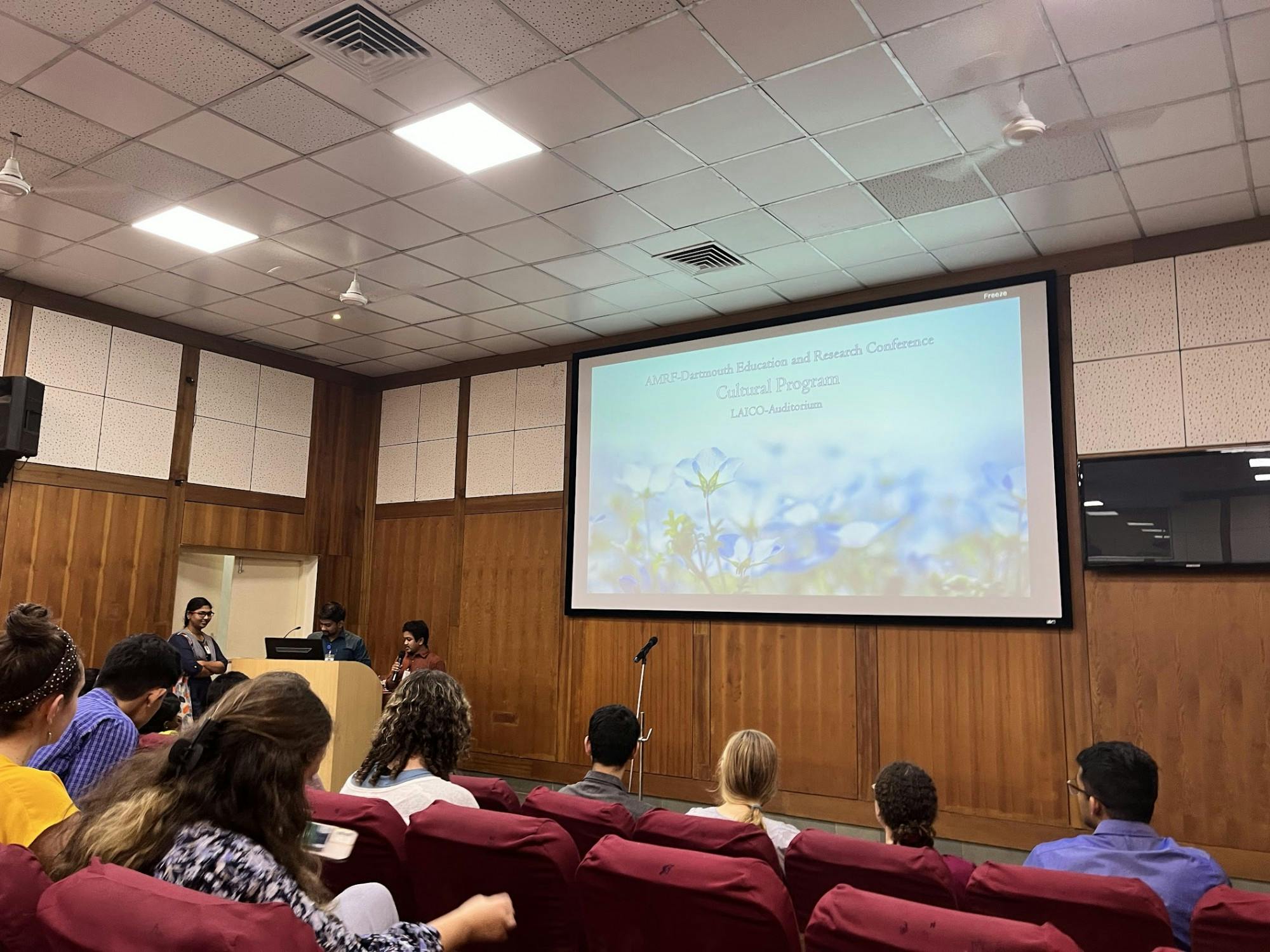A group of nine undergraduate students enrolled in BIOL 70, “Biologic Lessons of the Eye” visited Aravind Eye Hospital in Madurai, India over winterim to deliver research proposals at a conference and learn about ophthalmology and public health.
The conference took place in Madurai over the span of two days during the week-long trip. The students were joined on the trip by the two professors of the course, Dartmouth Hitchcock Medical Center ophthalmologist Michael Zegans and Dickey Center for International Understanding associate director Dawn Carey. While the course previously included a travel component, this year’s trip was the first in four years due to the COVID-19 pandemic.
Carey said that the students met with ophthalmological researchers and specialists and appreciated the “sense of community” at the Aravind Eye Hospital.
Geneva Kwaku ’23 said that she appreciated the opportunity to learn how to conduct scientific investigation in BIOL 70, noting that the course taught students to be “productive communicators” in science.
Kwaku said that each student in the class was assigned an ophthalmological topic, tasked with identifying discrepancies in pre-existing research related to their disease and designed protocols to address research issues. She said her topic was river blindness, a parasitic infectious disease that she had to contextualize with background information, global relevance and significance to the wider academic literature.
In 2016, Zegans and Carey considered adding a travel component to the course, as they both have separate long-lasting relationships with Aravind Eye Hospital, which Carey said is the largest producer outside of the United States of all eye equipment, specifically replacement contact lenses.
Kwaku said she was excited by the chance to gain “field experience.” She said that the group would wake up at around 7 a.m. to tour the eye hospital. She said most students on the trip tried to branch out of the seminar group and meet new people at the dining halls, adding that one of the most enriching moments on the trip was meeting a woman from Cameroon who utilized the same drug treatments she mentioned in her proposal to practice medicine and treat patients with river blindness on a daily basis.
“My biggest takeaway was learning how to be a good scientist,” Kwaku said.
Rachel Tiersky ’23, another student who went on the trip, said that a “major takeaway” was being able to compare the healthcare systems of the United States and India.
Tiersky said that her research involved studying sleep and glaucoma. Before the trip, she said she was under the impression that melatonin could be given to people as a glaucoma preventative. But, upon presenting her idea at the conference, a doctor noted how costs in the proposal make melatonin an inaccessible treatment for most.
“As someone going into medicine, moments like that are so important,” Tiersky said. “Otherwise, it’s so easy to get stuck in your American perception of what healthcare is.”
Carey said that some students were able to establish long-lasting connections with medical faculty. She said that during the COVID-19 pandemic, many Dartmouth students were deprived of the international breadth of experience they would typically receive. In addition to medical learning, Carey said trip participants went sight-seeing in Madurai and visited the Gandhi Memorial Museum.

A photo from one of the trip outings near Madurai, India.
Carey also noted the importance of “bidirectional value” in the Dartmouth-Aravind relationship, and said that working with Aravind was important to her because Dartmouth students are “great” at conducting literature-based research and can hopefully contribute to the hospital’s research.
Carey said that Aravind’s two-year training and work program recruits high school women from rural villages as paramedical staff to help doctors and nurses. This program has aided the Aravind Eye Hospital in realizing how healthcare outcomes improve when patients are paired with caretakers who speak the same language or are from the same area, she added.




